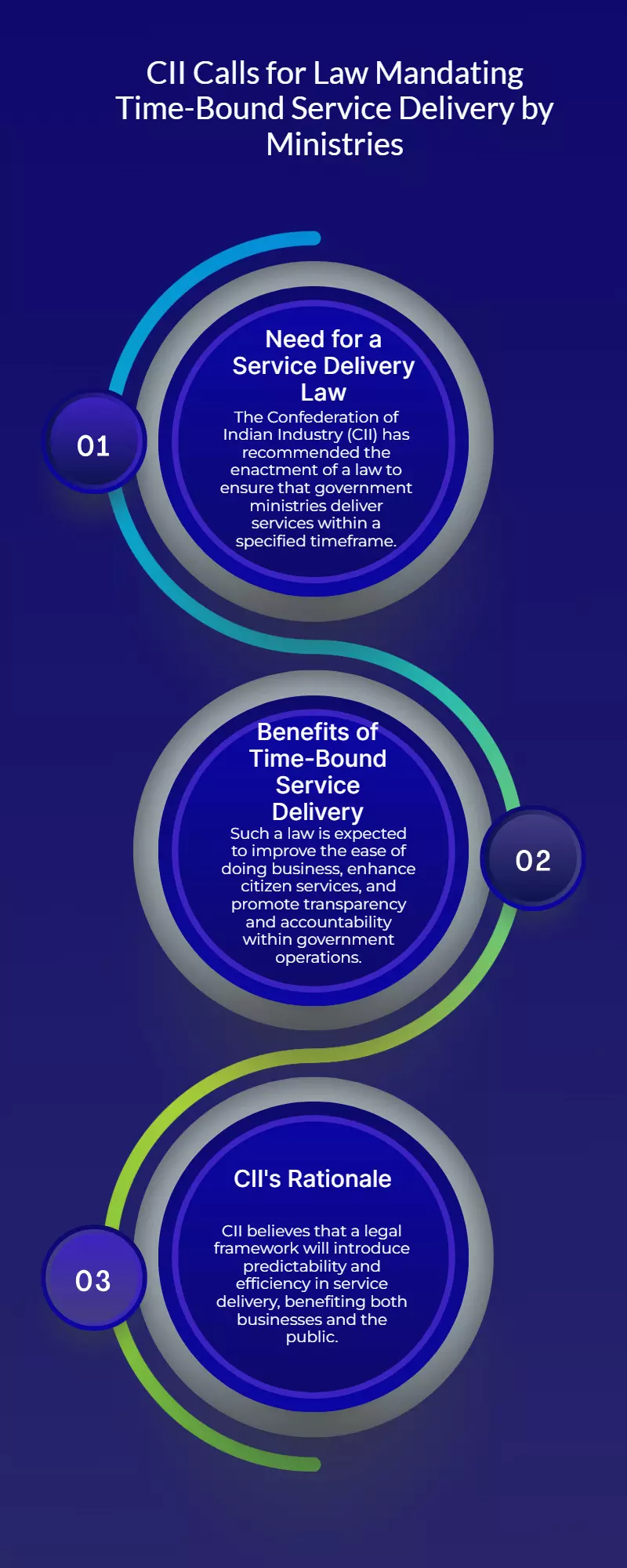CII Urges Law for Time-Bound Service Delivery by Ministries

By : Krishna Mishra
New Delhi, Jul 27 (PTI) — The Confederation of Indian Industry (CII) has called for the enactment of a central legislation to ensure time-bound delivery of services to businesses by Union ministries. The proposed law should include penalties for delays, a strong grievance redressal framework, and legal accountability, CII said on Sunday.
CII emphasized that the uncertainty around approval timelines results in delays, increased costs, and hampers long-term investment planning. While many states have enacted their own Right to Services Acts for public services, there is no such central legislation ensuring timely service delivery to enterprises by central ministries.
“Despite efforts to enforce timelines, businesses continue to face procedural delays and regulatory uncertainty,” said CII Director General Chandrajit Banerjee. He pointed out delays in refunds, fund disbursements, subsidies, and compliance processes that impact cash flow and planning.
CII proposed that the National Single Window System (NSWS) — launched in 2021 as a centralized digital platform for regulatory approvals — be made the exclusive channel for all central government services. However, the platform currently suffers from partial integration, with key ministries like Labour and Employment offering only limited services.
To address these gaps, CII recommended:
A central legislation enforcing time-bound and faceless service delivery
Deemed approvals in case of missed deadlines, holding full statutory validity
A robust grievance redressal system, including time-bound appeals and compensations
Legal backing for NSWS to ensure universal adoption by all ministries and states
CII argued that linking the proposed legislation with NSWS would make the digital platform the cornerstone of regulatory reform, providing real-time transparency and streamlining compliance.
“This reform has the potential to be a game-changer for India’s regulatory ecosystem,” Banerjee said, adding that it aligns with the government’s India @100 vision to position the country as a global manufacturing and investment hub.
